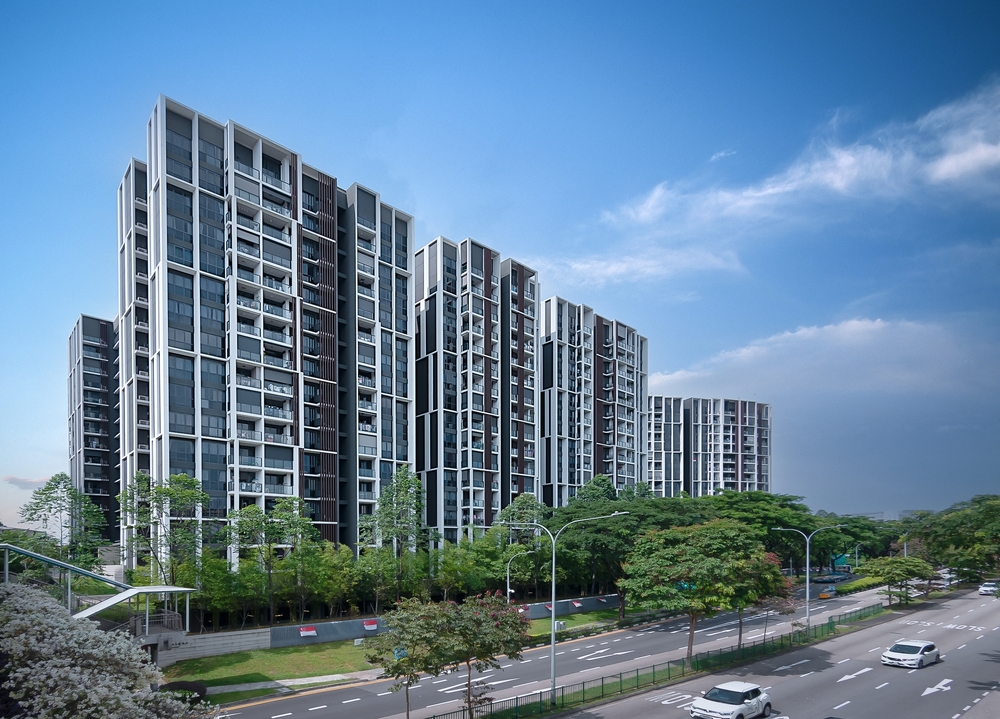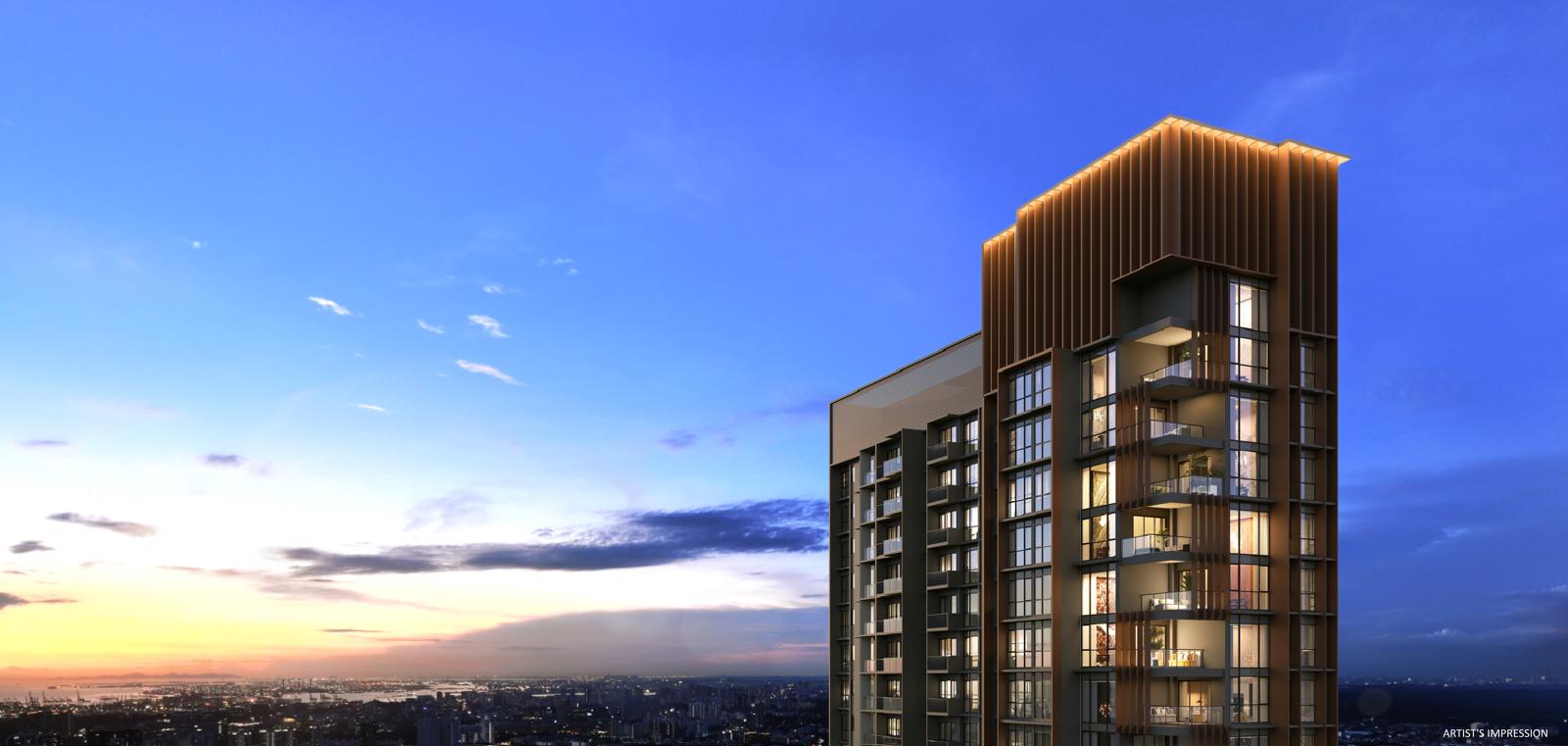Budget 2024 announced four key changes that will impact the Singapore residential market. Here is a summary and what to expect with the announcements.
Enhanced Annual Value Band for Owner-Occupier Residential Properties to offer Property Tax Relief in 2025
Owner-occupier residential properties will pay lower property tax from 2025 with the higher annual value band. The earlier tax was meant to be a wealth tax, but with annual values rising amid the surge in rents, owner-occupier residential properties were impacted by a significant jump in their property tax. This move will be a relief for the majority of homeowners.
Table 1: Changes To Property Tax
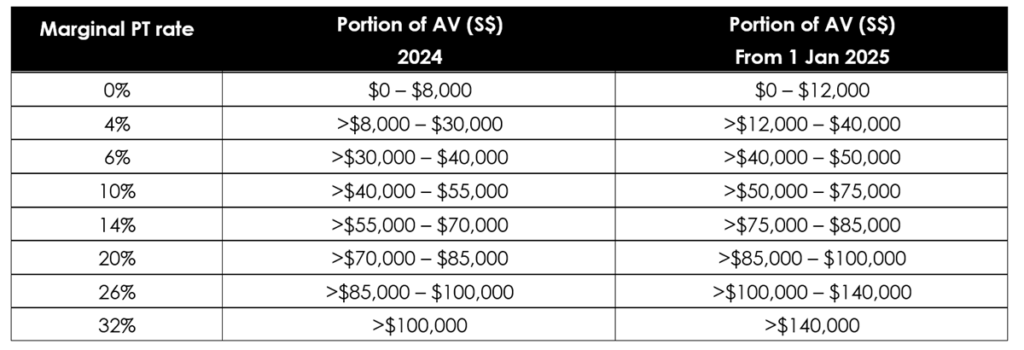
For example, an OCR 3-bedroom with an AV of $40,000 can enjoy a tax saving of $360 in 2025, while a semi-detached property with an AV of $85,000 can enjoy tax savings of $2,460.
In addition, retirees living in properties with high AV but facing cash flow issues in paying their property taxes can opt for a 24-month instalment plan with no interest, as opposed to the regular 12-month plan. This will make monthly payments more affordable for them. To be eligible, individuals must be aged 65 and above, living in the property they own, and have an assessable income of $34,000 or less.
Table 2: Property tax relief for owner-occupier residential properties from 2025
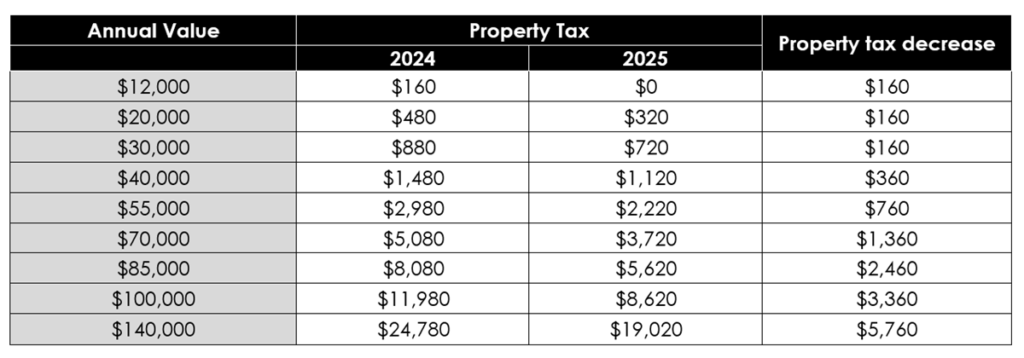
Single Seniors concession on ABSD
Single senior Singapore citizens aged 55 and above can now receive an additional buyer’s stamp duty (ABSD) refund to assist them in “right-sizing” their property. To qualify, these buyers must sell their only residential property within six months of purchasing a replacement, lower-value private property.
The extension of the ABSD concession to single senior Singaporeans is timely, providing this group with an additional option to right-size their properties and unlock funds from their existing property to support their retirement. The previously deterrent 20% ABSD had restricted this group to considering only HDB resale flats; however, they now have another housing alternative.
Nevertheless, those unable to cover the initial 20% ABSD must still sell their existing property before making a purchase. For example, for a $1.2 million property, the ABSD amounts to $240,000 that is payable within 14 days of exercising the Option to Purchase the private property.
Lower ABSD clawback rate for developers of housing developments that sell >90% within 5 years
Housing developers will now have more flexibility with the ABSD clawback if they sell at least 90% of their units. Developers will pay the full 25% or 35% (depending on when the site is purchased) as long as there are unsold units. ABSD remission clawback is subject to a 5% interest per annum.
Starting from February 16, 2024, the clawback rate will be reduced if they sell at least 90% of units in the development within the five-year timeline. This provides them with more flexibility while ensuring that the supply of new homes is released in a timely manner.
Recent GLS biddings have drawn more muted responses as developers are cautious amid the elevated interest rate environment and slower new home sales rates. By lowering the ABSD clawback based on the proportion of units sold, this will give developers some respite and confidence to bid for upcoming GLS sites, allowing them more time to sell their remaining units.
To put things into perspective, a 1% unsold unit equates to 7 units in a 700-unit housing development. Larger units, due to their higher price quantum, typically take longer to sell. Under this revised ABSD remission clawback, a $1 billion site with 1% unsold units can save up to $100 million, which is quite substantial.
Table 3: Revised ABSD remission clawback for residential projects
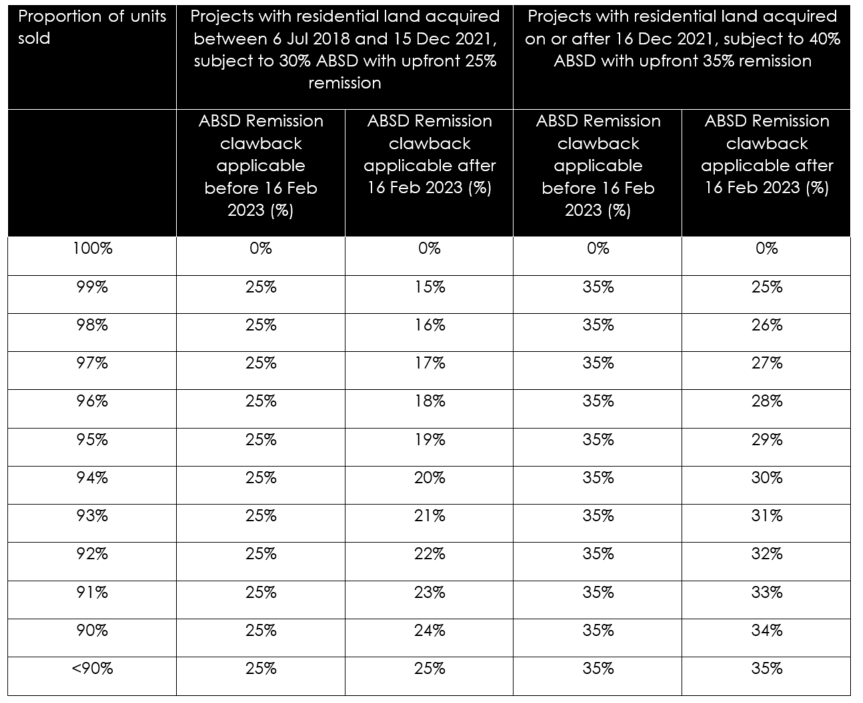
Table 4: ABSD clawback for a $1 billion site, that can be developed into 700 new homes, purchased in January 2023
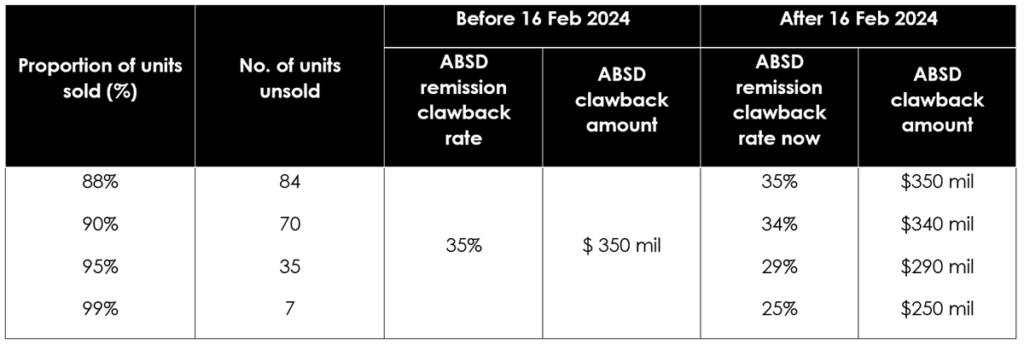
Eligible families waiting for BTO can soon get voucher to rent flat in open market.
To assist young couples ready to settle down, the Government will provide a voucher under the Parenthood Provisional Housing Scheme (PPHS). This voucher is designed to aid eligible families waiting for their Build-To-Order (BTO) units, enabling them to rent a Housing Board flat on the open market. The voucher will be available for a year.
The PPHS offers interim rental housing to families with a monthly household income of $7,000 or below, who have an uncompleted flat from HDB’s sales exercises.
There are no details yet on the amount of the voucher and the mechanics of the scheme.

